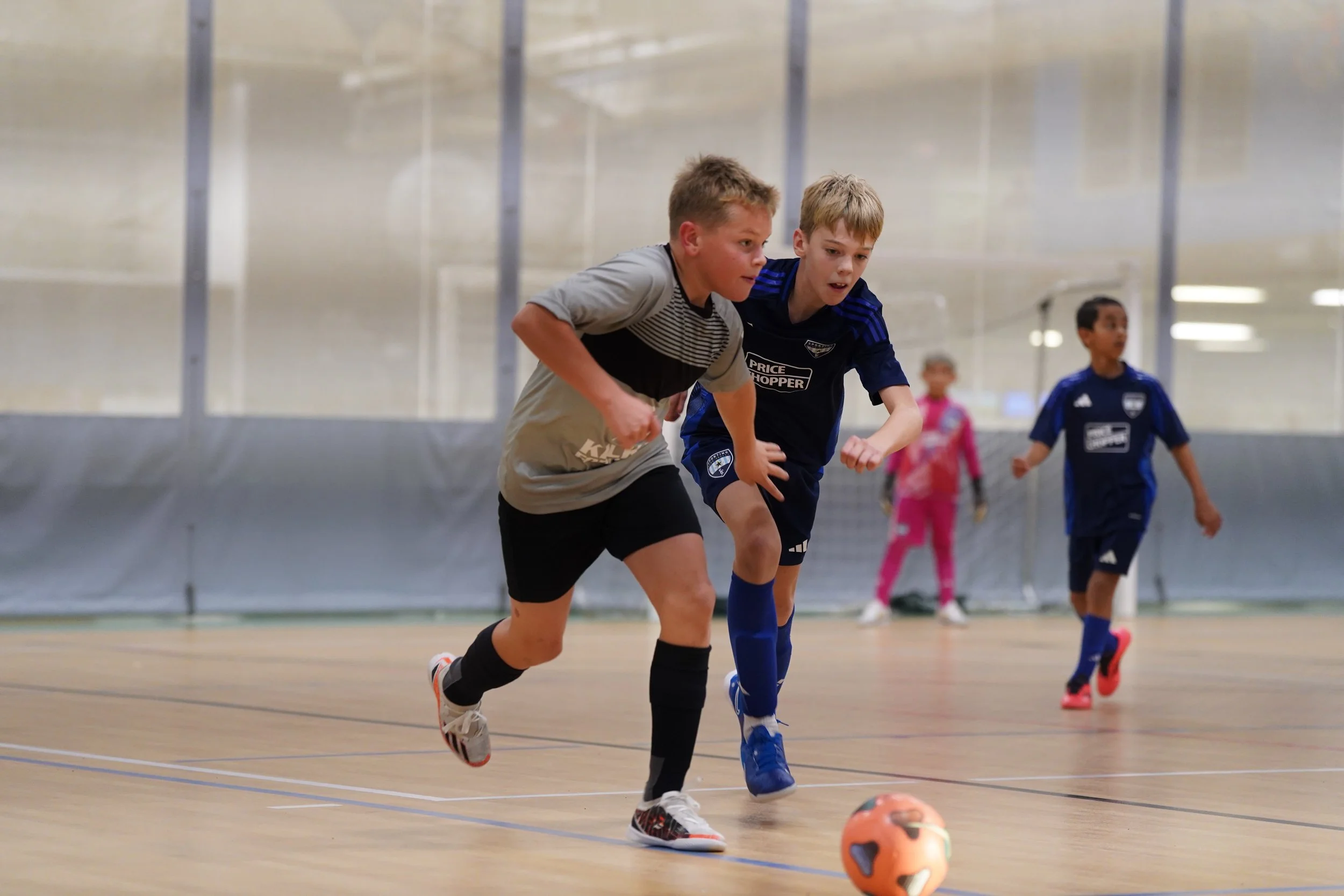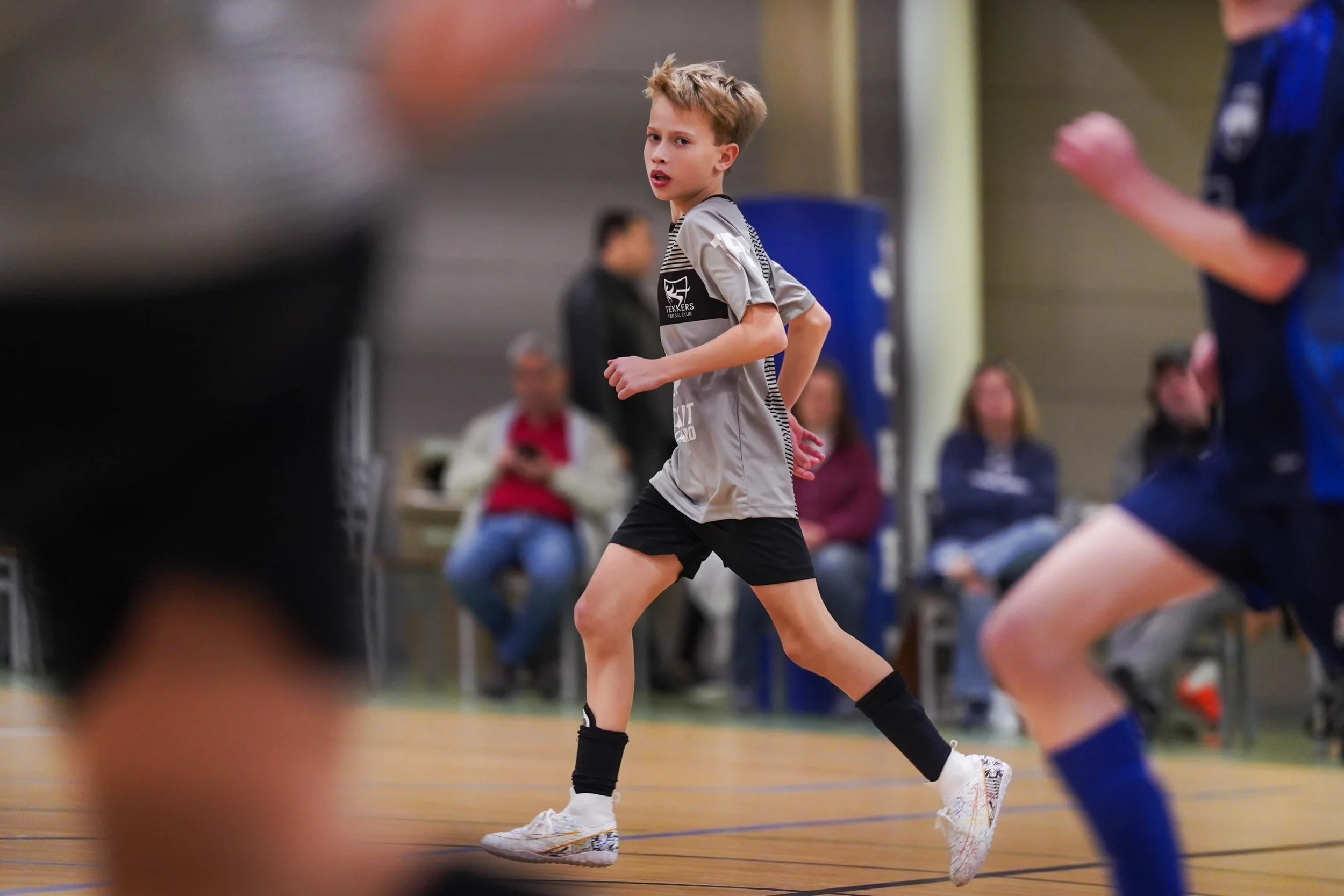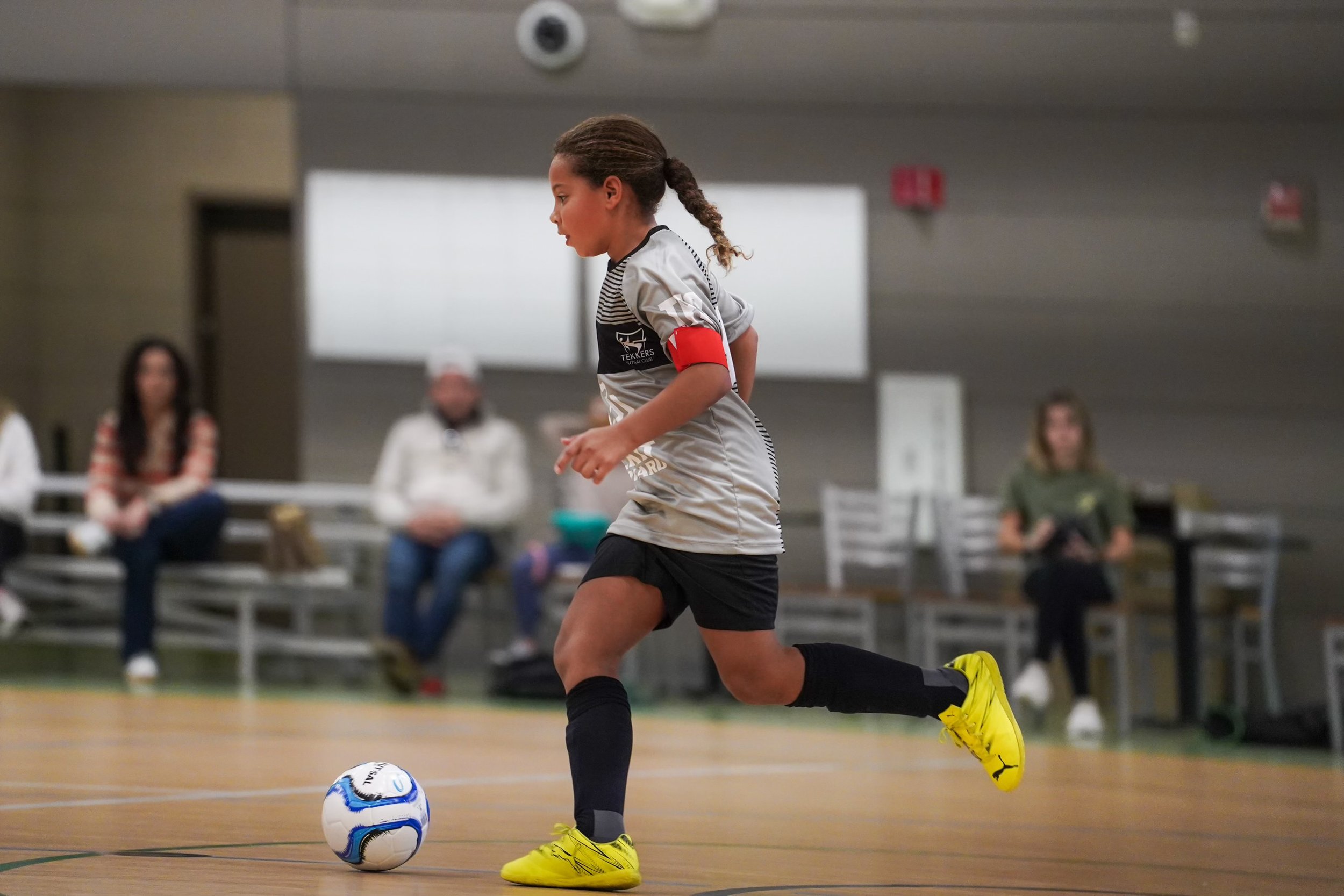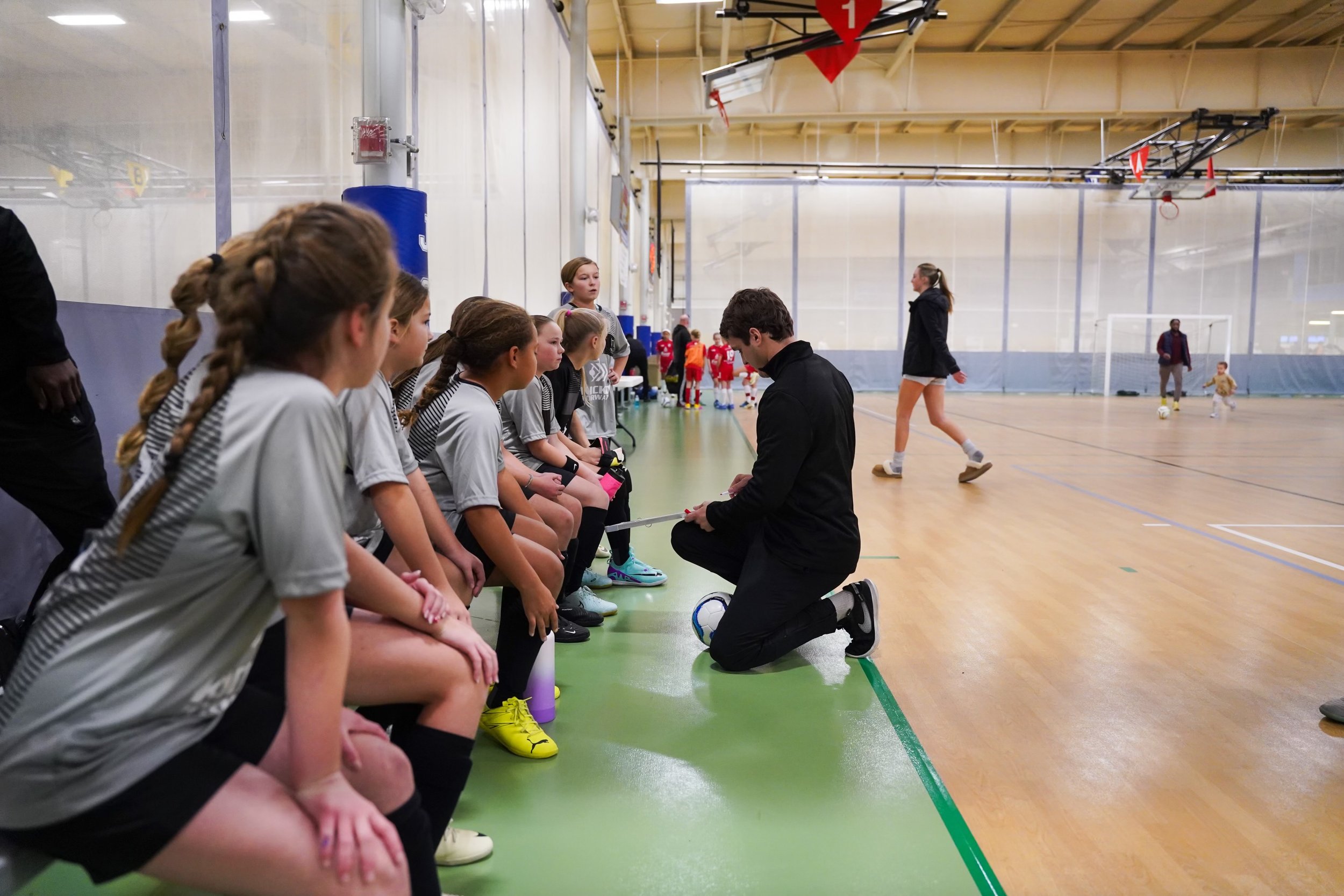Benefits of Playing Futsal for Youth Players
Futsal provides a unique opportunity for youth players to get meaningful touches on the ball. The best academies in the United States and across the globe have adopted futsal into their youth development cycles for a reason. Below are seven reasons why playing futsal is the perfect way for a young player to develop their game and push on to higher levels.
Creates Good 1v1 Players (Offensively and Defensively)
The laws of the futsal game promote 1v1 moments all throughout the court. Once the goalkeeper distributes the ball, you’re no longer allowed to create a numerical advantage by playing it back. This simple rule forces players to defend and attack straight up against their marker. Unlike the outdoor game, space is limited, and that forces defenders to learn how to defend 1v1 and attackers to create their own space to gain an advantage.
Improves Decision-Making On and Off the Ball
In futsal, due to the smaller court size, players are forced to process moments much quicker under constant pressure. Players on the ball must anticipate movement well before it happens. With fewer players on the court, each individual has more touches and more responsibility. One wrong pass in futsal can lead to an immediate counterattack. Players must read situations quickly and accurately for their team to succeed.
Promotes Creativity in Individuals
With fewer players and more individual responsibility on the court, youth players naturally find themselves on the ball more often. To succeed in these situations, they must learn to create their own space. Beating a defender in a 1v1 moment can lead directly to overloads and goal-scoring opportunities born from those micro-moments. Body feints, flicks, changes of direction, and varying speed are all creative tools that players use to gain an edge. Futsal rewards those who think differently, act quickly, and find ways to create space for themselves without relying solely on others. The more creative a player is, the more success they’ll have — ultimately leading to more confident performances in tight 1v1 outdoor situations as well.
Improves a Player’s Technical Ability on the Ball
A futsal court offers one of the most consistent playing surfaces in the game. At the youth level, players often face drastically different field conditions from one weekend to the next — one game on fast-moving turf, the next on long, uneven grass. These constant changes can force players to adapt their technique, often creating inconsistencies in their dribbling and ball control. In contrast, futsal is always played on a smooth, fast surface. If a player can learn to control and manipulate the ball in that quick-paced environment, even the fastest outdoor turf will feel slow by comparison.
Futsal places a premium on technical ability — every touch matters. Players are constantly tested on their first touch, ability to receive and release under pressure, and quick, accurate passing in tight spaces. One of the most unique technical aspects of futsal is the frequent use of the sole of the foot for control, turning, and passing. Over time, these habits translate to better control, quicker decision-making, and greater confidence on the ball in any environment.
Consistent and Meaningful Touches
Because futsal is played 4v4 (plus goalkeepers), each player gets significantly more consistent and meaningful touches on the ball. Research from U.S. Youth Futsal shows that players get over 200% more touches in a typical futsal match compared to a traditional indoor game, and 600% more touches than in an outdoor match. Over the course of a season, this adds up to thousands more valuable touches at the youth level — leading to much faster technical growth and development.
Teaches Core Concepts for Transitional Moments
Futsal is fast — and that speed forces players to react instantly when possession changes. Transitional moments happen constantly, and unlike in the outdoor game, there’s no time or space to mentally reset. Players must immediately switch from attack to defense, or defense to attack, often multiple times within a single minute. Regardless of position, these transition moments dictate the outcome of the game and require every player to be involved.
While outdoor soccer is generally less transition-heavy, futsal acts as a perfect teaching tool for the core principles of transition: pressing immediately, recovering quickly, and attacking with purpose. These lessons directly carry over to the outdoor game.
Helps Create a Well-Rounded Player
While futsal includes attacking, defending, and midfield roles, the flow of the game is extremely fluid. Players, regardless of their preferred position, must defend and attack in 1v1 moments. Futsal demands that every player be competent and effective on both sides of the ball. The more well-rounded a player becomes in both possession and out of possession, the more comfortable they’ll be switching roles or positions in the outdoor game. Futsal helps develop players who understand the full picture of the game — not just those who are locked into a single role.
Futsal is a catalyst for youth development. It is more than just soccer on a basketball court — it's a developmental goldmine. Futsal improves a player's technical ability, decision-making, teaches core concepts regardless of positional roles, and most importantly, enhances a player's creativity on the ball to create for themselves!





